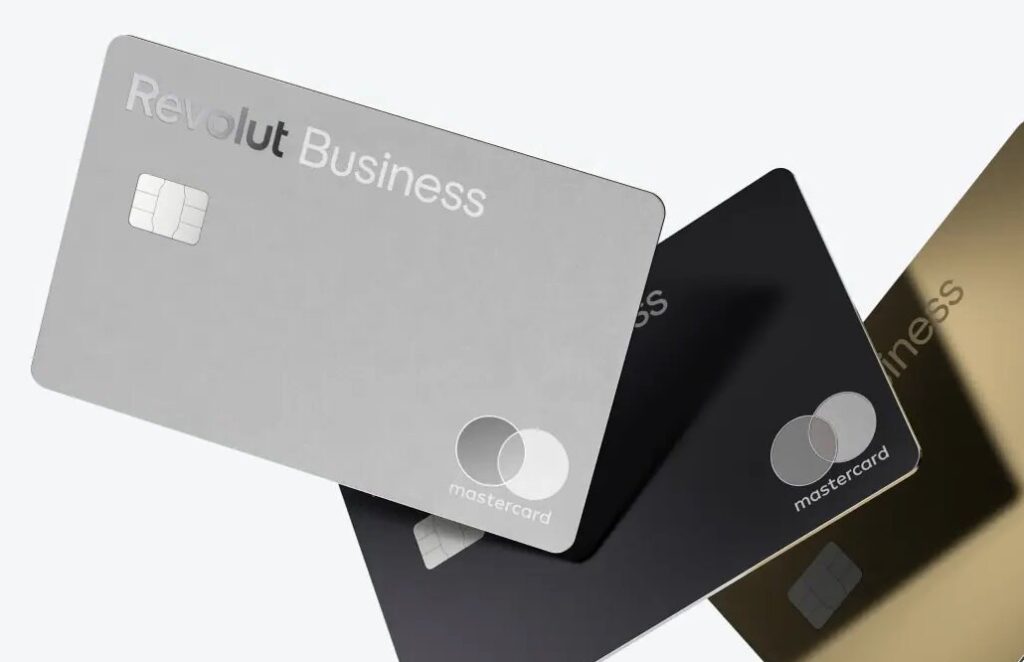How to open a business account in the the UK from the US [2026]
There are no legal restrictions to opening a UK business bank account – even if you’re not a UK resident. However, to open a business account you’ll usually need to have a business registered in the UK to be considered, and you might need to do a bit of shopping around as not all accounts are suitable for non-resident customers.
If you’ve already taken the leap and got your UK business registered and running, this is the guide you need. Join us as we look at some of the best business account options available, how to open a business account with banks and alternative providers like Wise and Revolut in the UK, as well as how to do it without going there.
Key points: UK business account
- There’s no legal barrier to opening a UK business account as a US resident
- As some banks do not offer account to non-resident customers, you may find it easier to use an online provider like Wise and Revolut
- To open a UK business account you’ll need to complete verification processes and provide some paperwork
- Some banks allow online account opening – digital only services like Wise and Revolut have entirely digital account application, verification and onboarding
Can I open a business bank account in the UK as a non-resident?
Yes. You can open a UK business account with some international banks and with digital non-bank alternatives.
Some UK banks do not offer business accounts to non-resident customers, so it’s useful to read through the eligibility requirements for any account you’re interested in carefully. A good alternative if you’re planning to manage your money online and in-app anyway, is to pick a digital only service like Wise or Revolut. Both offer accounts you can open from the US to hold and receive payments in British pounds, with some helpful time saving features for busy entrepreneurs. More on that later.
Can I open a business bank account online in the UK?
Some banks do allow non-resident customers to open a business account, and may allow an online business account opening process. However, this is not universal. As non-resident customers don’t usually have the same ID documents as a resident, the process of verification can be different compared to local customers, and banks may need you to visit a branch or talk to a member of staff to walk through the process in person.
Instead, you might want to consider a non-bank provider which operates entirely online and in-app, such as Wise or Revolut. In both cases you can set up your account by uploading images of your key paperwork – and you don’t need to be in the UK to get GBP account details, either.
What is the best bank for a business account in the UK?
You can open a business account in the UK with a bank or non-bank alternative provider. As banks set their own rules about who is eligible to apply, you might find that some can not offer account services to non-resident business owners. Read the fine print carefully before you select the right option for you – including looking at some of the best business accounts online like Wise and Revolut which can often be easier to use.
Ultimately, there’s no single best business account – it’ll come down to your specific preferences and requirements. To give a quick overview of some popular options we’ve compared a few providers below, with more detail coming up next.
| Service/Provider | Wise business | Revolut business | OFX business | HSBC business |
|---|---|---|---|---|
| Open account online | Fully digital application, verification and onboarding | Open account online or in-app | Apply for your account online – you may need to speak to an advisor before you can start transacting | You may start your application online and open a live chat with an assistant to discuss your needs |
| Foreign currencies | 40+ currencies including GBP and USD | 25+ currencies including GBP and USD | 7 currencies including GBP and USD | GBP only in primary account – open separate foreign currency accounts as needed |
| Account fees | 31 USD fee to get full feature access, no ongoing fees | 0 USD – 119 USD/month | No ongoing fees | Fees apply for foreign currency accounts |
| International transfer fees | From 0.35% | 5 USD – some accounts include limited no-fee transfers | No OFX fee | From 17 GBP |
| Business debit cards | Debit and expense cards available | All account tiers have debit cards – features vary depending on plan selected | Not available | Visa Visa debit card and commercial credit card available |
Wise business account
Great for: No ongoing costs, with ways to hold, send, spend, receive and exchange a very broad selection of currencies in your account
Wise business customers can hold and exchange 40+ currencies and receive payments in 10 currencies including major currencies like USD and GBP to their account with local bank details.
There’s a one time fee to get full account access, with no ongoing charges to pay, and all accounts offer linked debit and expense cards, low cost international transfers, batch payment solutions and other handy business friendly features. Whenever you need to convert currencies, Wise uses the mid-market exchange rate with low, transparent fees so you can instantly check and compare the costs.
Best features:
- Hold and exchange 40+ currencies including USD and GBP, get local account details for 10 currencies, including USD and GBP, to be paid conveniently into your account
- Get business debit and expense cards for you and your team to spend conveniently
- Currency exchange uses the mid-market rate with low transaction fees and no monthly fees

Learn more: Wise Business Account review
Revolut business account
Great for: Choice of different account tiers depending on how often you transact – ways to hold and exchange 25+ currencies in one account
Revolut US offers several different business account products which allow you to pick either an account with no ongoing charges, or to upgrade to a monthly fee to unlock higher no-fee transaction limits. All accounts have linked cards, and some no-fee weekday currency conversion.
The exact features of your account will depend on the tier you select, with monthly charges up to 119 USD for the top end Scale plan. All accounts can be opened and operated online or in the Revolut app.
Best features:
- Hold and exchange 25+ currencies, including USD and GBP – all accounts have some no-fee conversion on weekdays, to plan limits
- Choose from an account with no monthly fee and more limited features, or upgrade to a feature packed tier with ongoing costs
- Receive GBP like a local with a Revolut account
Learn more: Revolut business account review
If you cannot decide between the two, we have a detailed comparison that might help you: Wise Business vs Revolut Business
OFX business account
Great for: Online sellers, and businesses working with marketplace sites, looking to be paid in any of 7 major currencies
OFX is a currency specialist which offers international payments, currency risk management products and a Global Currency Account aimed at online sellers and businesses which take digital payments in major currencies through marketplaces like Amazon and PSPs like Stripe. There’s no fee to open an OFX account and no ongoing charges to pay. Instead, a small markup is added to the exchange rate being used for currency conversion when you make a payment or withdrawal. No debit card is offered, but you can set up your account conveniently online or in-app.
Best features:
- Receive, hold and exchange 7 major currencies including USD and GBP
- Connect your account to marketplaces, PSPs and ecommerce sites to be paid conveniently
- No ongoing OFX fees to worry about
Related: Best international money transfer services for business payments
HSBC business account
Great for: Full feature bank account with different options for startups, small businesses and more established enterprises
HSBC is a fully licensed bank in the UK and in many other countries globally. If you open an HSBC business bank account you’ll be able to access all the financial services you may need from the same place, including funding, loans and credit. HSBC has several different account options depending on your business entity type and your borrowing needs. While you’re unlikely to be able to fully open your account online as a non-resident, there’s a live chat service on the HSBC website or in their mobile banking app which allows you to connect with a member of staff to be guided through the process.
Best features:
- Primary account holds GBP only, but you can also open foreign currency business accounts for USD and most other tradable currencies
- Get credit and loans – which are not often available from non-bank providers
- Different accounts to suit businesses of different sizes and stages
What is the process for opening a business bank account in the UK?
The process for opening an account varies a lot between providers. If you choose a business account from a UK bank, you’ll need to assemble your supporting documents, and may need to visit a branch to hand in paperwork and give a signature. You may also need an opening deposit to get started.
With online alternative providers like Wise and Revolut you’ll be able to upload required documents and ID online or using your mobile device. This is typically a quicker process compared to the in person application processes employed by some UK banks.
How to open a UK business account online
As we’ve seen not all UK banks allow online account opening for non-resident business customers. Where this service is available it’s usually pretty straightforward to use as long as you have all the required ID documents and business registration information to hand.
To give an example of how to open a UK business account online, here’s how to register with Wise business and get your GBP details to start receiving payments:
- Download the Wise app or open the desktop site, and tap Sign Up
- Confirm you would like to open a business account
- Follow the prompts to enter your personal and business details
- Complete the verification step by uploading the documents requested
- Pay the one time account opening fee and add money to your account if you’d like to
- Within the Wise app, tap the + symbol to add a GBP currency balance and get your GBP details to receive payments from others
- You can now use your account to hold, send, spend and receive pounds as well as dollars
Requirements to open a UK business bank account
Different UK banks and providers set their own eligibility requirements to open an account, which can vary somewhat. Some banks only offer business services to resident customers, and you’ll normally need to be over 18 years old, with a UK registered business to apply. Additional requirements may also apply depending on the provider you prefer, such as a set minimum annual turnover.
There are other standard requirements which basically restrict banks and other providers from giving accounts to businesses which may be involved in illegal or restricted activities. While many of these restrictions are obvious, others may not be so intuitive. Some charities, businesses selling alcohol or companies involved in pharmaceuticals may not be able to open some accounts for example. Check the provider’s acceptable use policy carefully to make sure your business complies.
What documents do you need to open a business bank account in the UK?
The paperwork you’re asked for to open your business account can vary depending on the type of UK entity you’ve registered. Usually the requirements are pretty straightforward, but you will need to assemble a quite extensive set of documents to back up your application.
Here is a list of documents and information usually needed to open a UK business account:
- Your full business address, including postcode
- Your business contact details (landline number, mobile number, email address)
- Companies House registration number (for limited companies and partnerships)
- Business estimated annual turnover
- Proof of ID and address
- Full name and date of birth of the business owner, partners and directors
- Business owner, partners and directors’ contact information and address
Fees to open a UK business account
The opening or monthly fee you pay will vary depending on the account type, the plan you select and the business entity you are running. You can usually find free to open accounts – at least for smaller businesses and sole traders – although you’ll still want to check out transaction fees to make sure they are acceptable to you. Larger businesses with more complex financial needs might benefit from a fee paying account to access a broader range of services – weigh up your options before you decide.
More information: Best no-fee business bank accounts
Conclusion: Opening a UK business account
If you’ve got a UK registered business you’ll want to consider opening an account to hold and receive GBP conveniently and with low fees. While some UK banks do not offer business account solutions for non-residents, there are some suitable services from international banks which you can select based on the type and size of UK business you have.
As well as options from UK banks, you could consider opening a business account from a non-bank service like Wise or Revolut which lets you open your account online or in-app from the UK to receive, hold, exchange, send and spend GBP as well as USD all in the same place.
Non-bank providers can be flexible and cheap to use, and often come with handy time saving features like cloud accounting integrations and batch payment solutions, too. Compare a few UK business account products from both banks and non-bank alternative providers to see which works best for you.
Related: Best international business bank accounts


